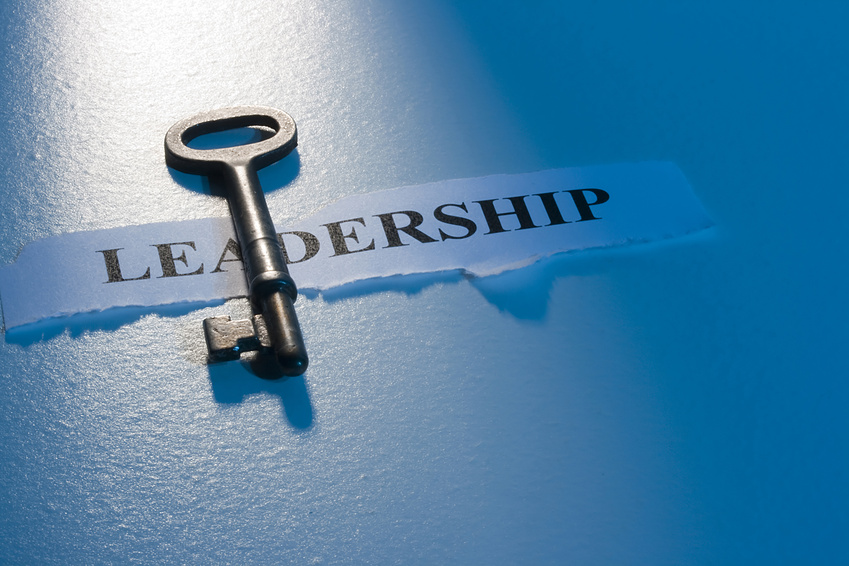Posted on 29 July 2020 Comments (0)
Tags: Anna's Posts, Attitude, Behaviors, Brand Impact, Business Etiquette, communication, Confidence Builders, Critical Thinking, Emtional Intelligence, Leadership, Relationship Building, Visual Presence, Voice
 It is easy to be misunderstood in virtual meetings. Facial cues and tone of voice are more difficult to discern. In order to avoid misunderstandings and potential conflict, try to ask questions without making judgements. When differences in opinions or viewpoints arise, offer another point of view as a way to create like thinking. Keeping these tactics in mind during virtual meetings will help to create a strong team.
It is easy to be misunderstood in virtual meetings. Facial cues and tone of voice are more difficult to discern. In order to avoid misunderstandings and potential conflict, try to ask questions without making judgements. When differences in opinions or viewpoints arise, offer another point of view as a way to create like thinking. Keeping these tactics in mind during virtual meetings will help to create a strong team.
Posted on 22 July 2020 Comments (0)
Tags: Brand Impact, Career Builders, Coaching, communication, Confidence, Confidence Builders, Critical Thinking, Culture, Emtional Intelligence, Go to Meeting Presence, Interpersonal skills, Leadership, Leadership Presence, Listening, Presentation Skills, Speaking Skills, Zoom
 Meeting on Zoom, GoToMeeting, or WebEx is difficult. Long meetings are especially challenging. Be sure to set up early for the meeting, having the items you need available. Put away any distractions, such as a cell phone or additional paperwork (no multi-tasking). Keeping engaged will help you connect with those in the meeting. Facial expressions are the best way to ensure a personal connection (smiling and making eye contact directly into the screen). Watch for cues to ensure your message is being heard. Always use mute when you are not talking. Be open to dialogue on Zoom and engage in discussions.
Meeting on Zoom, GoToMeeting, or WebEx is difficult. Long meetings are especially challenging. Be sure to set up early for the meeting, having the items you need available. Put away any distractions, such as a cell phone or additional paperwork (no multi-tasking). Keeping engaged will help you connect with those in the meeting. Facial expressions are the best way to ensure a personal connection (smiling and making eye contact directly into the screen). Watch for cues to ensure your message is being heard. Always use mute when you are not talking. Be open to dialogue on Zoom and engage in discussions.
 Egos are fragile. The wisest person is the one without a glaring ego. How does one keep it in check? Be aware of the trigger or triggers, such as speaking without letting another person have a voice. Surround yourself with individuals who bring talent to the table. Don’t hire individuals who agree too much with you. Seek honest feedback, even when it hurts. Remember not to act like the smartest person in the room.
Egos are fragile. The wisest person is the one without a glaring ego. How does one keep it in check? Be aware of the trigger or triggers, such as speaking without letting another person have a voice. Surround yourself with individuals who bring talent to the table. Don’t hire individuals who agree too much with you. Seek honest feedback, even when it hurts. Remember not to act like the smartest person in the room.
 It is important to analyze and review our mistakes because they can become learning lessons. If we don’t determine what caused the mistake and how it affected ourselves or others, we are doomed to repeat it. First, it is important to acknowledge the mistake. This, in and of itself, can be difficult. Then we should consider what caused the mistake. Was it a lack of understanding or was it due to emotions? I personally write my mistakes in a journal. I jot down the cause and the effect. This helps me to be aware of how I can manage the problem more effectively if the situation occurs again. Learning from a past misstep can prevent you from making the same mistake twice.
It is important to analyze and review our mistakes because they can become learning lessons. If we don’t determine what caused the mistake and how it affected ourselves or others, we are doomed to repeat it. First, it is important to acknowledge the mistake. This, in and of itself, can be difficult. Then we should consider what caused the mistake. Was it a lack of understanding or was it due to emotions? I personally write my mistakes in a journal. I jot down the cause and the effect. This helps me to be aware of how I can manage the problem more effectively if the situation occurs again. Learning from a past misstep can prevent you from making the same mistake twice.
Posted on 06 May 2020 Comments (0)
Tags: Anna's Posts, Attitude, Career Builders, communication, Confidence, Confidence Builders, Emtional Intelligence, Interviewing skills, Marketing, Media, Professional Development
 For individuals in transition between jobs, this is the time to practice your virtual interview skills. Here are some helpful tips for a successful virtual interview. First, prepare an introduction (approximately one minute long). Next, prepare yourself to answer the following questions:
For individuals in transition between jobs, this is the time to practice your virtual interview skills. Here are some helpful tips for a successful virtual interview. First, prepare an introduction (approximately one minute long). Next, prepare yourself to answer the following questions:
- Why are you the right fit for the organization? What about your attributes and experiences makes you the best candidate for the role?
- What is a succinct example that illustrates you have the qualities needed to make a difference and contribute towards the organization’s success?
Record yourself three times. Then watch your recordings and pick the best one to send to colleagues for review. Pinterest and Instagram are wonderful resources to find information as to what to wear and what to say.
These guidelines will help prepare you for a virtual interview or a phone interview. Just like preparing for an in-person interview, you need to think ahead. In these times, you also need to consider your virtual presence
Posted on 19 November 2019 Comments (0)
Tags: Anna's Posts, Attitude, Behaviors, Brand Impact, Business Social Etiquette, Career, Career Builders, Civility, Coaching, communication, Critical Thinking, Culture, Emtional Intelligence
 Honesty is the best policy—at the right time. Being honest at the wrong time usually leads to friction and hurt feelings. Working with people who feel honesty is the best policy – even in the middle of difficult situations – I have witnessed that it has not always helped their careers. Instead, most often being honest at the wrong time has hurt their chances of upward movement.
Honesty is the best policy—at the right time. Being honest at the wrong time usually leads to friction and hurt feelings. Working with people who feel honesty is the best policy – even in the middle of difficult situations – I have witnessed that it has not always helped their careers. Instead, most often being honest at the wrong time has hurt their chances of upward movement.
Posted on 22 May 2019 Comments (0)
Tags: Anna's Posts, Behaviors, Business Social Etiquette, Career Builders, Career Killers, Coaching, communication, Confidence, Confidence Builders, Culture, Emtional Intelligence, Leadership, Networking, Relationship Building
 Affiliations offer companionship, respect, and safety which is why folks belong and groups grow. The negative side is when groups become one voice of yes people.
Affiliations offer companionship, respect, and safety which is why folks belong and groups grow. The negative side is when groups become one voice of yes people.
We all want relationships that bring a foundation. Beyond that, how do we retain our individuality with integrity and honesty yet keep the group strong? It is a question, I often ponder. Hopefully, groups will keep this issue on the forefront and avoid groupthink and shutting out different voices.
 Successful leaders bring people together especially when the issues are critical. The best leaders:
Successful leaders bring people together especially when the issues are critical. The best leaders:
• Take the time to listen
• Stay open to possibilities
• Never gloat after a win
• Always give credit to others
• Strive for the win/win
• Tap into a team of advisors

In a recent Tribune article, a world traveler was asked how he engaged folks in foreign countries not speaking the language. He indicated that a smile and direct eye contact cuts through language barriers all across the world!
This is true whenever we meet folks we don’t know. Prior to even introducing yourself, the direct eye contact and a smile initiates the engagement. This goes for all situations including intense ones. The first contact propels the next step of engagement.
 Understanding the audience and the way information is received takes awareness of reactions to light small talk. Practice key observations such what does the body language and facial expressions suggest? How do they ask or answer questions?
Understanding the audience and the way information is received takes awareness of reactions to light small talk. Practice key observations such what does the body language and facial expressions suggest? How do they ask or answer questions?
Begin to take mental notes. If the conversation is over the phone, listen to the pauses and the tone of voice when they speak. Remember, what may appear as a gentle question to you can feel harsh to the receiver. If a comment is made and the reaction perceived feels like a bull in a china shop, negate it by adding a softer comment. Successful leaders acquire much more capital when they avoid acting like the bull in a china shop.
 It is easy to be misunderstood in virtual meetings. Facial cues and tone of voice are more difficult to discern. In order to avoid misunderstandings and potential conflict, try to ask questions without making judgements. When differences in opinions or viewpoints arise, offer another point of view as a way to create like thinking. Keeping these tactics in mind during virtual meetings will help to create a strong team.
It is easy to be misunderstood in virtual meetings. Facial cues and tone of voice are more difficult to discern. In order to avoid misunderstandings and potential conflict, try to ask questions without making judgements. When differences in opinions or viewpoints arise, offer another point of view as a way to create like thinking. Keeping these tactics in mind during virtual meetings will help to create a strong team.

 Meeting on Zoom, GoToMeeting, or WebEx is difficult. Long meetings are especially challenging. Be sure to set up early for the meeting, having the items you need available. Put away any distractions, such as a cell phone or additional paperwork (no multi-tasking). Keeping engaged will help you connect with those in the meeting. Facial expressions are the best way to ensure a personal connection (smiling and making eye contact directly into the screen). Watch for cues to ensure your message is being heard. Always use mute when you are not talking. Be open to dialogue on Zoom and engage in discussions.
Meeting on Zoom, GoToMeeting, or WebEx is difficult. Long meetings are especially challenging. Be sure to set up early for the meeting, having the items you need available. Put away any distractions, such as a cell phone or additional paperwork (no multi-tasking). Keeping engaged will help you connect with those in the meeting. Facial expressions are the best way to ensure a personal connection (smiling and making eye contact directly into the screen). Watch for cues to ensure your message is being heard. Always use mute when you are not talking. Be open to dialogue on Zoom and engage in discussions. It is important to analyze and review our mistakes because they can become learning lessons. If we don’t determine what caused the mistake and how it affected ourselves or others, we are doomed to repeat it. First, it is important to acknowledge the mistake. This, in and of itself, can be difficult. Then we should consider what caused the mistake. Was it a lack of understanding or was it due to emotions? I personally write my mistakes in a journal. I jot down the cause and the effect. This helps me to be aware of how I can manage the problem more effectively if the situation occurs again. Learning from a past misstep can prevent you from making the same mistake twice.
It is important to analyze and review our mistakes because they can become learning lessons. If we don’t determine what caused the mistake and how it affected ourselves or others, we are doomed to repeat it. First, it is important to acknowledge the mistake. This, in and of itself, can be difficult. Then we should consider what caused the mistake. Was it a lack of understanding or was it due to emotions? I personally write my mistakes in a journal. I jot down the cause and the effect. This helps me to be aware of how I can manage the problem more effectively if the situation occurs again. Learning from a past misstep can prevent you from making the same mistake twice. For individuals in transition between jobs, this is the time to practice your virtual interview skills. Here are some helpful tips for a successful virtual interview. First, prepare an introduction (approximately one minute long). Next, prepare yourself to answer the following questions:
For individuals in transition between jobs, this is the time to practice your virtual interview skills. Here are some helpful tips for a successful virtual interview. First, prepare an introduction (approximately one minute long). Next, prepare yourself to answer the following questions: Honesty is the best policy—at the right time. Being honest at the wrong time usually leads to friction and hurt feelings. Working with people who feel honesty is the best policy – even in the middle of difficult situations – I have witnessed that it has not always helped their careers. Instead, most often being honest at the wrong time has hurt their chances of upward movement.
Honesty is the best policy—at the right time. Being honest at the wrong time usually leads to friction and hurt feelings. Working with people who feel honesty is the best policy – even in the middle of difficult situations – I have witnessed that it has not always helped their careers. Instead, most often being honest at the wrong time has hurt their chances of upward movement. Affiliations offer companionship, respect, and safety which is why folks belong and groups grow. The negative side is when groups become one voice of yes people.
Affiliations offer companionship, respect, and safety which is why folks belong and groups grow. The negative side is when groups become one voice of yes people. Successful leaders bring people together especially when the issues are critical. The best leaders:
Successful leaders bring people together especially when the issues are critical. The best leaders:
 Understanding the audience and the way information is received takes awareness of reactions to light small talk. Practice key observations such what does the body language and facial expressions suggest? How do they ask or answer questions?
Understanding the audience and the way information is received takes awareness of reactions to light small talk. Practice key observations such what does the body language and facial expressions suggest? How do they ask or answer questions?

